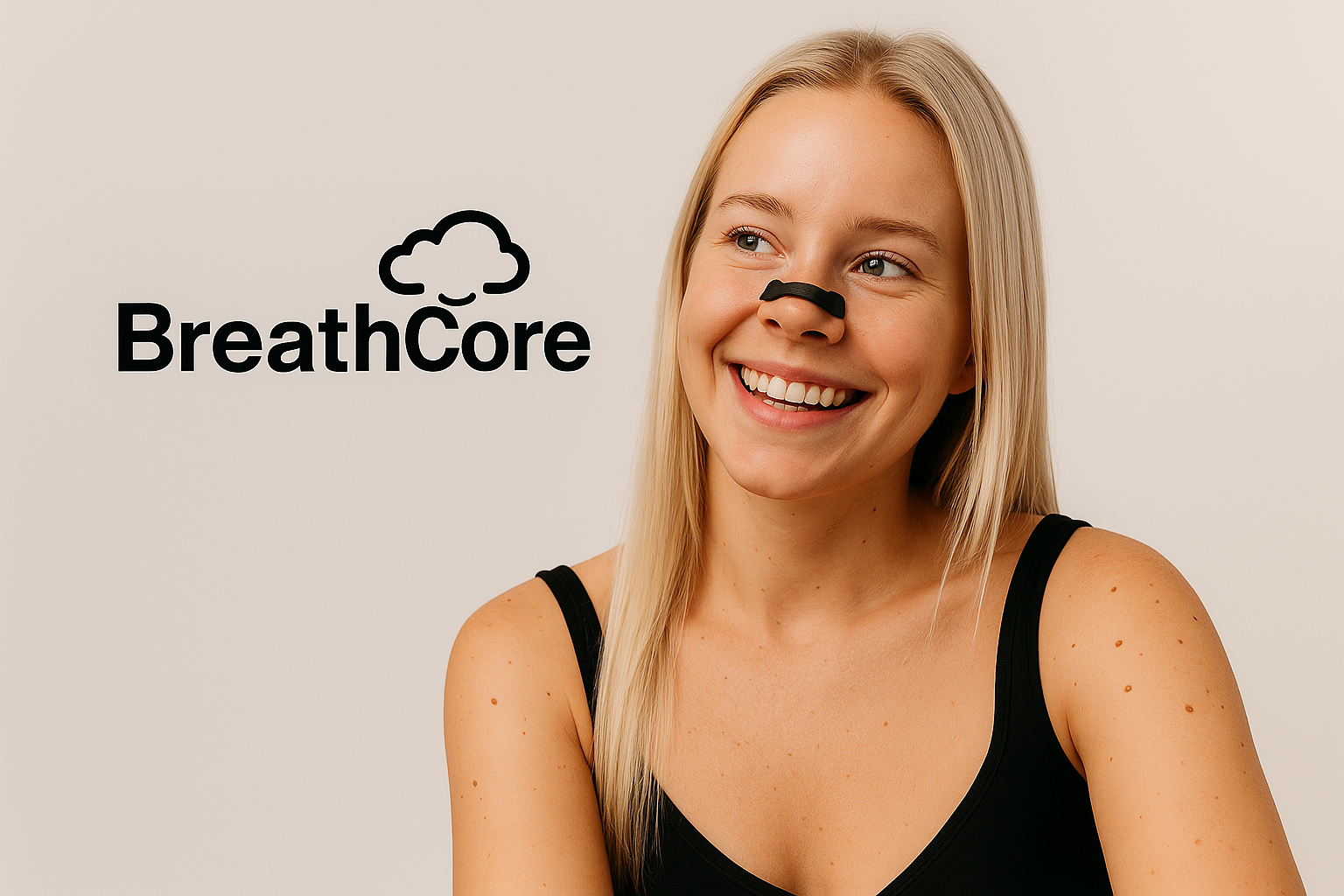
Most people don’t realize they struggle to breathe properly — or how much it’s holding them back.
Can’t Breathe Through the Nose
Over two-thirds of adults say they have trouble breathing through their nose, even when at rest.
Snoring Every Night
Around 90 million Americans snore, with 40% of men and 24% of women doing so habitually.
Deviated Septum Is Common
A deviated septum often causes blocked airways, congestion, and poor sleep—yet many live with it untreated.

Mastering your breath unlocks powerful, often overlooked health benefits. When you consistently breathe through your nose, it sets off a chain reaction—boosting brain function, circulation, oxygen efficiency, and nervous system balance.
Put simply: nasal breathing is a simple, science-backed hack to improve your health across the board.
Intake is the only system designed to physically hold your nose open to its widest point—and keep it there comfortably.
Nasal Breathing Made Easy
Intake increases nasal airflow by up to 80%, making every breath smoother and deeper.
Snore Less, Sleep Better
87% of users say their snoring reduced significantly—or stopped entirely—with Intake.
Relief for Sinus Issues
Even with a deviated septum, Intake can help open the airway and relieve sinus pressure instantly.
How you breathe influences almost every system in the body—from cognition and mood to heart health and digestion. Making nasal breathing your default fine-tunes those systems, delivering a measurable lift in overall wellness.
Public Enemy No. 1: Mouth Breathing
More than half of adults—and an even higher percentage of kids—habitually breathe through the mouth, according to the American Academy of Otolaryngology. That “small” habit triggers a surprisingly large chain of problems:
🔴Why It Hurts-What Happens
•Nervous-system overload
Long-term dysregulation that can show up as anxiety, depression, and poor posture
•Inefficient workouts
Shallow, rapid breaths raise heart rate, slash oxygen uptake, and speed dehydration
•Respiratory issues
80 % of mouth-breathers report asthma, allergies, or other lung problems
•Dental damage
Dry mouth invites gum disease, cavities, and tooth decay
•Sleep disruption
Snoring, insomnia, and low-quality sleep become more common
•Systemic strain
Higher risk of headaches, hypertension, poor memory, and low brain-oxygen levels
Bottom line: mouth breathing quietly chips away at nearly every aspect of health—so breaking the habit matters.
Snoring: More Than a Nuisance
Common Triggers
Why It Matters
Sleep: Nose vs. Mouth Breathing
Nose Breathing Perks
Mouth Breathing Pitfalls

Why Train With Nasal Breathing?
What Mouth Breathing Costs You
Oral Health
Saliva is your mouth’s natural defense. Mouth breathing dries it up, leading to:
Brain Health
Takeaway
From sleep quality and workout output to oral hygiene and mental clarity, consistent nasal breathing is a simple, science-backed upgrade that touches every corner of health. Kick the mouth-breathing habit and let your nose do the work—it’s built for the job.